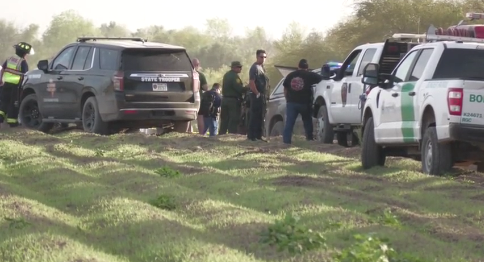A controversial new immigration law could take effect in Texas on Monday if the U.S. Supreme Court doesn't intervene.
Last Tuesday, the high court extended a temporary block of SB4, which gives local and state police the power to arrest anyone they believe has illegally entered the country.
That temporary stay expires on Monday at 4 p.m. unless the court justices make a ruling on whether or not the temporary block should continue.
It's the latest update in the saga between Governor Greg Abbott and the federal government over who should have the final say on immigration policy at the Texas border.
Get DFW local news, weather forecasts and entertainment stories to your inbox. Sign up for NBC DFW newsletters.
Justice Samuel Alito's order extending the hold on the law until Monday came a day before the previous hold was set to expire. The extension gives the court an extra week to consider what opponents have called the most extreme attempt by a state to police immigration since an Arizona law that was partially struck down by the Supreme Court in 2012.
U.S. District Judge David Ezra had rejected the law last month, calling it unconstitutional and rebuking multiple aspects of the legislation in a 114-page ruling that also brushed off claims by Texas Republicans of an “invasion” along the southern border. But a federal appeals court stayed that ruling and the Justice Department asked the Supreme Court to intervene.
Republican Texas Gov. Greg Abbott signed the law, known as Senate Bill 4, in December. It is part of his heightened measures along the state's boundary with Mexico, testing how far state officials can go to prevent migrants from crossing into the U.S. illegally after border crossing reached record highs.
Texas-Mexico Border
Senate Bill 4 would also give local judges the power to order migrants arrested under the provision to leave the country or face a misdemeanor charge for entering the U.S. illegally. Migrants who don’t leave after being ordered to do so could be arrested again and charged with a more serious felony.
Critics say it leaves the door wide open for racial profiling and infringes on federal law, which technically has jurisdiction over immigration policy.
A number civil rights organizations, and most notably the Department of Justice itself have sued to have SB4 struck down.
This all led to the Supreme Court to issue the temporary stay, preventing the law from taking effect and to give the high court more time to make a ruling.
In an appeal to the high court, the Justice Department said the law would profoundly alter “the status quo that has existed between the United States and the States in the context of immigration for almost 150 years.”
U.S. officials have also argued it would hamper the government's ability to enforce federal immigration laws and harm the country's relationship with Mexico.
The battle over the immigration enforcement law is one of multiple legal disputes between Texas officials and the Biden administration over the extent to which the state can patrol the Texas-Mexico border to hamper illegal crossings.



